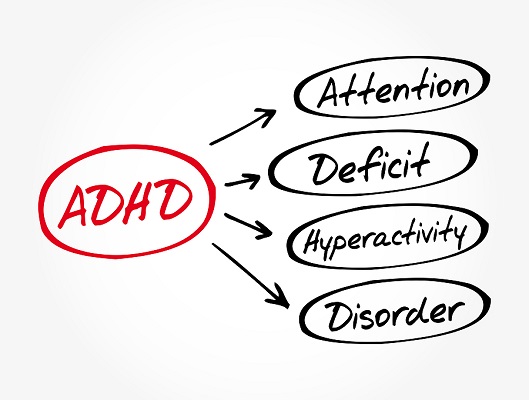ADHD and Long-Term Health: What to Expect

Attention-deficit/hyperactivity disorder (ADHD) is a neurodevelopmental condition characterized by symptoms such as inattention, hyperactivity, and impulsivity. Often diagnosed in childhood, ADHD can persist into adulthood, affecting various aspects of daily life. Understanding the long-term health implications of ADHD is crucial for managing the disorder and improving overall quality of life. This article explores the potential long-term health impacts of ADHD and offers insights into what individuals with ADHD might expect over time.
ADHD and Mental Health
One of the primary concerns for individuals with ADHD is their mental health. Research indicates that adults with ADHD are at a higher risk for co-occurring mental health conditions, such as anxiety, depression, and substance use disorders. The chronic challenges associated with ADHD, including difficulties with focus, organization, and impulse control, can contribute to feelings of frustration and inadequacy, potentially exacerbating mental health issues.
Long-term studies have shown that individuals with ADHD are more likely to experience persistent anxiety and depression compared to their peers without ADHD. The stress of managing symptoms and the impact on daily functioning can contribute to these mental health struggles. Effective management of ADHD symptoms through medication, therapy, and lifestyle adjustments can help mitigate these risks and improve overall mental well-being.
Academic and Occupational Challenges
ADHD can significantly impact academic and occupational outcomes. Children with ADHD often face difficulties in school, including problems with attention, organization, and completing assignments. These challenges can persist into adulthood, affecting job performance and career progression. Adults with ADHD may experience issues such as frequent job changes, difficulties in maintaining employment, and lower job satisfaction.
To address these challenges, individuals with ADHD may benefit from targeted interventions and accommodations. In educational settings, strategies such as extended time on tests and organizational support can help. In the workplace, modifications such as flexible scheduling, task prioritization, and clear instructions can support job performance. With appropriate support, individuals with ADHD can achieve success and fulfillment in their academic and professional lives.
Physical Health Considerations
ADHD can also have implications for physical health. Research has shown that individuals with ADHD are at a higher risk for certain health conditions, including obesity, sleep disorders, and cardiovascular issues. The impulsivity and hyperactivity associated with ADHD can contribute to unhealthy lifestyle choices, such as poor diet and lack of exercise, which may increase the risk of obesity and related health problems.
Sleep disturbances are another common issue for individuals with ADHD. Difficulty falling asleep, restless sleep, and frequent waking can negatively impact overall health and exacerbate ADHD symptoms. Managing sleep hygiene and establishing a consistent sleep routine can help improve sleep quality and overall health.
Additionally, there is evidence suggesting that individuals with ADHD may be at a higher risk for accidents and injuries due to impulsive behavior and inattention. Taking precautions to ensure safety, such as using protective gear during physical activities and practicing mindfulness, can help reduce the risk of accidents.
Social and Relationship Dynamics
ADHD can affect social interactions and relationships. Individuals with ADHD may struggle with social cues, maintaining attention in conversations, and managing impulses, which can lead to misunderstandings and conflicts with others. Over time, these difficulties can impact relationships with family, friends, and romantic partners.
Therapy and social skills training can be beneficial for improving interpersonal skills and managing relationship challenges. Building strong support networks and practicing effective communication can help strengthen relationships and enhance social functioning.
Coping Strategies and Long-Term Management
Long-term management of ADHD involves a combination of strategies and interventions. Medication, such as stimulants and non-stimulants, can help manage core symptoms of ADHD. Behavioral therapy, cognitive-behavioral therapy (CBT), and coaching can provide additional support in developing coping strategies, improving organizational skills, and addressing co-occurring mental health issues.
Lifestyle modifications, including regular exercise, a balanced diet, and effective stress management techniques, can also play a crucial role in managing ADHD symptoms and improving overall health. Establishing routines, using organizational tools, and setting realistic goals can help individuals with ADHD navigate daily challenges and achieve long-term success.
Conclusion
ADHD can have a range of long-term health implications, impacting mental health, academic and occupational outcomes, physical health, and social relationships. However, with appropriate management and support, individuals with ADHD can lead fulfilling and successful lives. Understanding the potential long-term effects of ADHD and implementing effective coping strategies can help mitigate challenges and enhance overall well-being. By addressing the unique needs of individuals with ADHD and providing comprehensive support, we can promote better long-term health outcomes and improve the quality of life for those affected by this condition.










